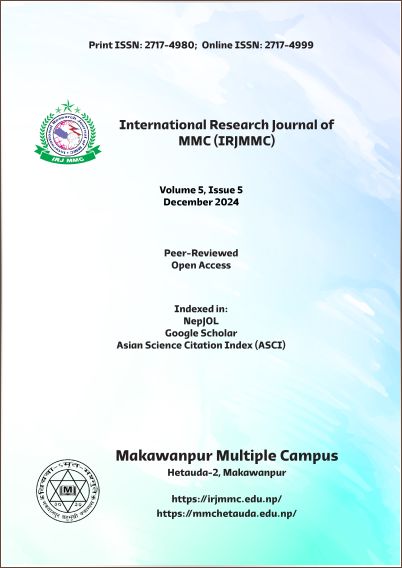Exploring the Role of Artificial Intelligence in Education: Insights from Teachers’ and Students’ Perspectives in Nepal
DOI:
https://doi.org/10.3126/irjmmc.v5i5.73633Keywords:
Artificial intelligence , Higher education, Pedagogy, Teachers' perception, Students' perceptionAbstract
The study explores the perspectives of teachers and students regarding the integration of artificial intelligence (AI) in higher education in Nepal. Adopting a qualitative research methodology, a survey was conducted with 200 students and 20 teachers through Google Forms from various educational backgrounds to assess their attitudes toward AI tools. The results indicate that both groups recognize AI is potential to enhance learning and teaching experiences, although their perceptions differ across specific aspects. This study explores the perspectives of teachers and students regarding the integration of artificial intelligence students generally appreciate AI’s role in improving engagement, motivation, and personalized learning but they also express concerns about privacy, collaboration, and effectiveness of these tools in promoting independent research. Teachers report benefits such as improved lesson plans, grading efficiency, and data-driven insights. However, they highlight challenges in aligning AI with their pedagogical approaches and achieving consistent student engagement. The findings underscore the transformation potential of AI in education while identifying areas for improvement, including the need for privacy safeguards and adaptability to diverse teaching methods. To address these issues, education institutions can better leverage AI’s capabilities fostering more inclusive and effective learning environments for the students.
Downloads
Downloads
Published
How to Cite
Issue
Section
License
Copyright (c) 2024 The Author(s)

This work is licensed under a Creative Commons Attribution-NonCommercial 4.0 International License.
This license enables reusers to distribute, remix, adapt, and build upon the material in any medium or format for noncommercial purposes only, and only so long as attribution is given to the creator.

